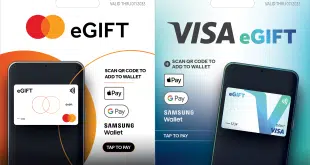While some transit agencies are in the process of implementing or mulling fare systems that will accept general-purpose contactless chip cards, the Massachusetts Bay Transportation Authority and vendor Masabi US Ltd. on Monday rolled out a smart-phone ticketing app for Boston commuter-rail passengers that requires no big capital investment in card readers on the part of the financially struggling MBTA. The partial rollout comes after a test and marks the first time a major U.S. transit agency is making smart-phone payments generally available to riders, according to the MBTA and Masabi.
Dubbed mTicket, the app runs on Apple Inc.’s iPhone and smart phones running Google Inc.’s Android operating system, with a version for BlackBerry phones coming soon. More than 4,000 people have downloaded the app, the majority for the iPhone version, Joshua K. Robin, the MBTA’s director of innovation, tells Digital Transactions News. About 400 commuters used it for fare payment on the first day, he adds.
Robin says the MBTA is pleased with the initial download and payment figures. “Just seeing that number come in, we feel that it’s fairly impressive,” he says.
The MBTA, locally known as “the T,” expects smart-phone fare payments will increase quickly. Robin notes that the app is only partially rolled out: it’s currently usable only on five commuter-rail lines terminating in Boston’s North Station. By the end of the month, transit officials expect it will be live on nine other lines and branches linked to the city’s South Station, as well as ferries. In addition, only single- and 10-ride passes are being sold through it, but the T’s other types of tickets and passes will be sold once the system is fully operational. Some 66,000 commuters use the rail lines on an average weekday.
The app, built on Masabi’s JustRide platform, enables riders to buy tickets anytime by entering their payment card information, and then display them while riding by hitting the “activate” button when the app is opened. The system generates encrypted bar codes as well as digital watermarks and animated colors, according to The Boston Globe. For on-board fare collection, the watermark and colors, which change daily, will be the way train conductors take payments because they won’t be carrying scanners to read the codes, according to the Globe. One side benefit for some smart-phone payers is that they won’t get hit with the $3 surcharge they would pay when buying a ticket from a conductor after boarding at a station with a ticket seller.
The MBTA’s merchant acquirer is Cincinnati-based Vantiv Inc. As the mobile-payments processor, Masabi, whose parent company is based in the United Kingdom, gets 2.8% of the value of mobile fares, according to Robin.
The MBTA expects the system will lower its cash-handling costs and shave its long-term capital expenditures by reducing its need to buy fare vending machines or staff stations with agents. Some 80% of its 135 commuter-rail stations do not have a vending machine or agent, Robin says. Upgrading those stations for fare sales would cost $70 million. “By not doing that we actually feel we’re providing the customer with better service,” he says.
Robin says a recent study by Harvard and the Massachusetts Institute of Technology showed that 76% of riders on two lines serving some affluent north Boston suburbs used smart phones. “About half of our riders say they do mobile purchases today,” he says. “The commuter-rail ridership is fairly wealthy.”
Some 13 British transit agencies use Masabi technology, and the Metropolitan Transportation Authority (MTA) in New York is testing it on its Metro-North commuter-rail line. Payments technology consultant Peter J. Quadagno of Quadagno & Associates Inc. in West Chester, Pa., says mobile apps might be a good option for transit agencies that aren’t sold on using open-loop (general-purpose) contactless cards for fare payments.
“I can tell you, there’s not a transit authority of any heft that isn’t looking at mobile-wallet solutions,” says Quadagno.
nn





